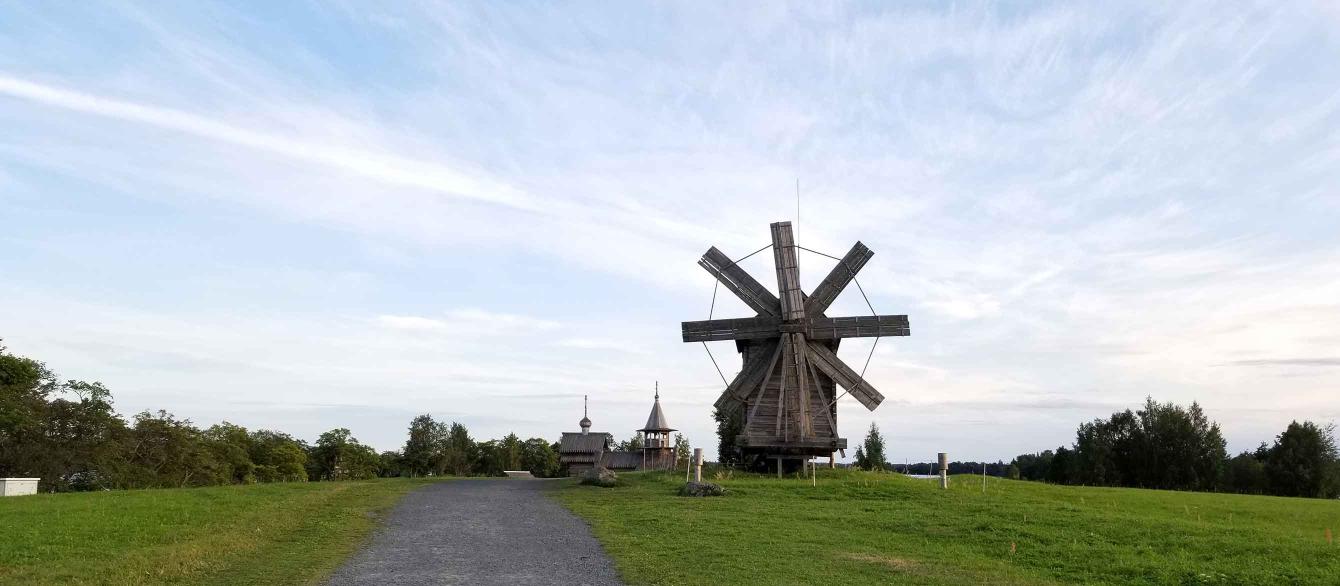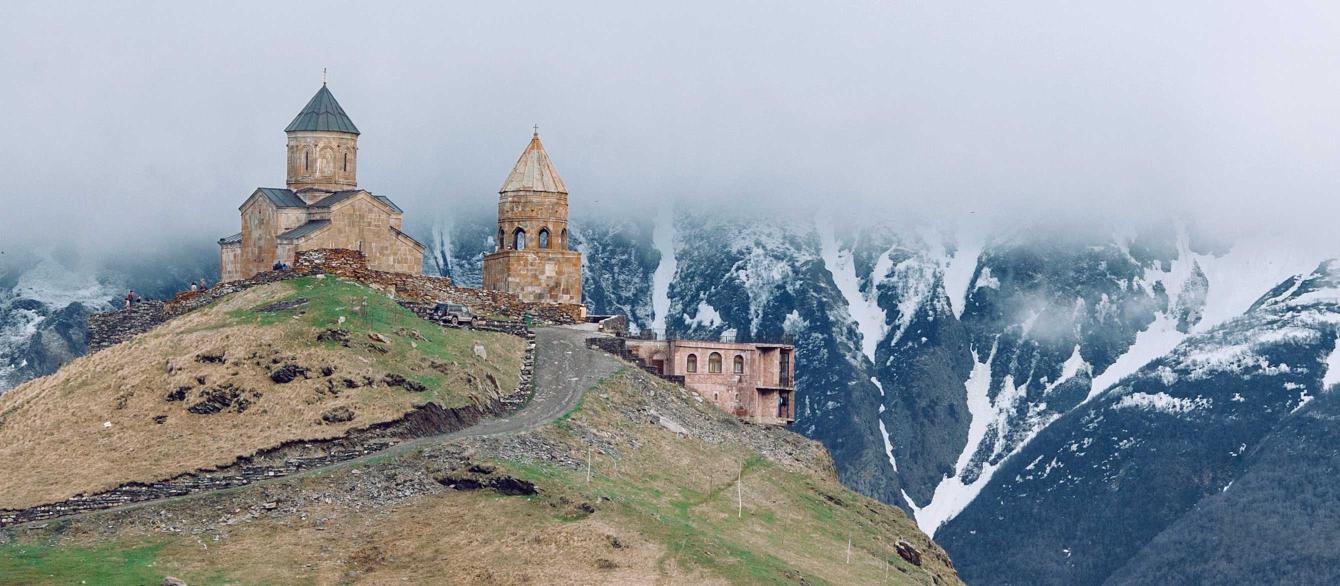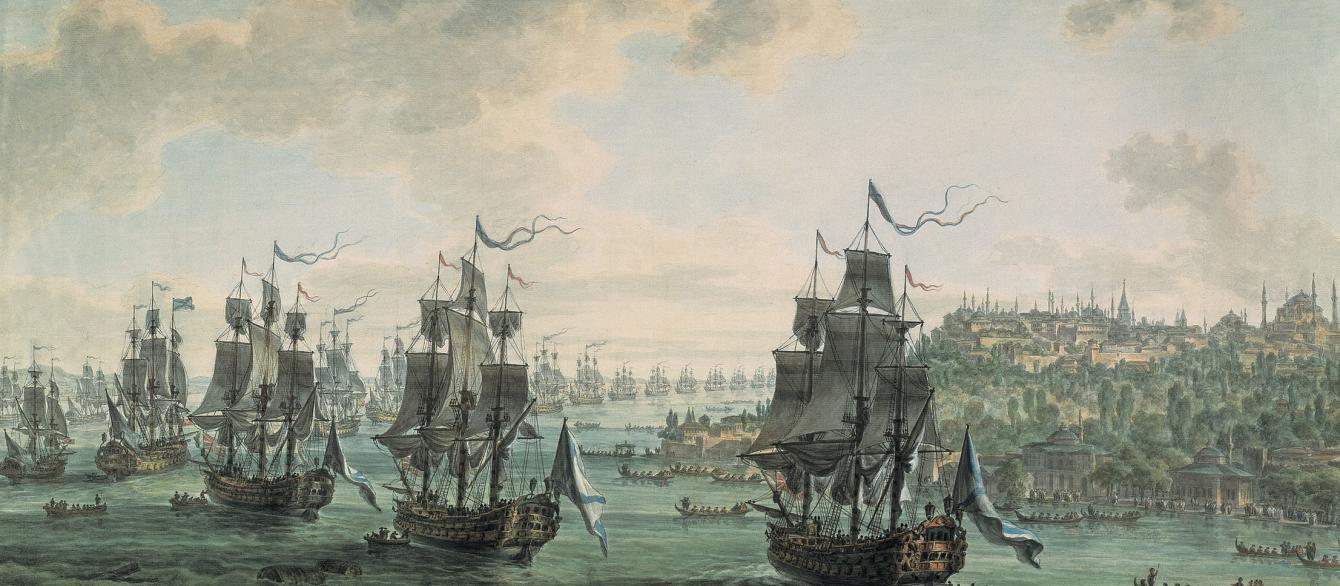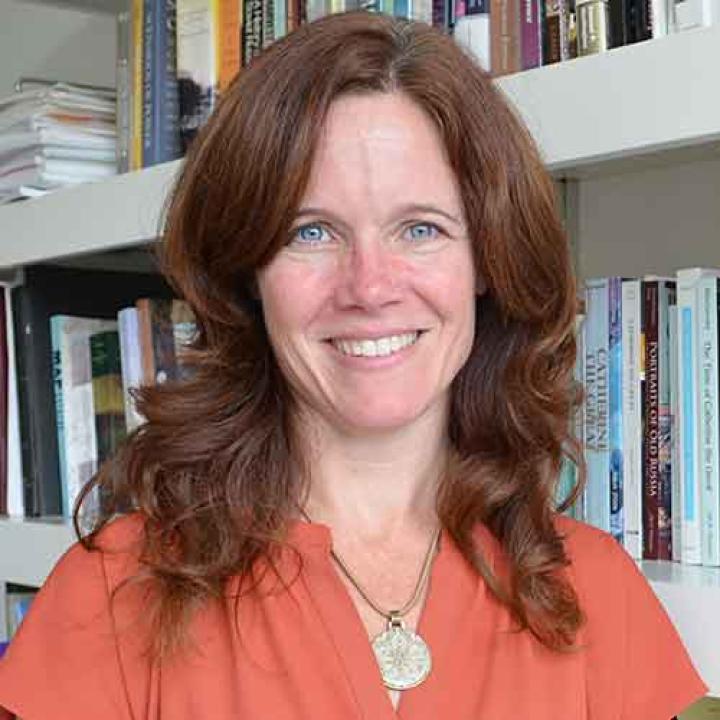The world is waking up to the idea that the Black Sea matters. News outlets around the world now describe it as a hot spot and a flashpoint; some have even resuscitated the “inhospitable” designation favored by ancient seafarers. Environmental activists are rediscovering its ecosystems: As the largest anoxic basin in the world, its depths lack oxygen and, therefore, marine life. Unlike the fish-rich Mediterranean, the Black Sea is a biogeochemical anomaly that provides scientists with a unique research environment. Ever since the Chernobyl nuclear disaster in 1986 it has been a repository of radioactive materials, but it has been a repository of perfectly preserved shipwrecks and amphorae for millennia. The prominence of the Black Sea is inscribed in legend — in antiquity the region was home to Amazon warriors and the Golden Fleece — and in the memoirs of those who fought in the Crimean War, the Russian-Ottoman wars, the Russian Civil War, and World War II. Within the past 15 years, Russia’s invasion of Georgia, the Sochi Olympics, and Russia’s annexation of Crimea and subsequent invasion of Ukraine have reintroduced the Black Sea to the global public. Gone are the days when only a regional expert could identify bomb-ravaged cities like Kherson on the map.
The interest of the world is focused anew on the ports of Odesa, Istanbul, Novorossiysk, Mariupol, Sevastopol, and Batumi not only because of military conflict or geopolitical contestation but because of the role these sites play in powerful global economic networks. The interruption of the grain trade and development of China’s Belt and Road Initiative, among other things, drive this point home: There is value in controlling the Black Sea.
There is value in studying it as well. For decades, academics have been wrestling with the idea that the natural world itself deserves a central place in the study of human affairs. There is enormous interest but little consensus about how to integrate study of the human and natural worlds, let alone about how to build bridges across the humanities, social sciences, and sciences. Leaving such challenges aside, Black Sea studies has two bigger problems. First, there is no consensus about where the region itself begins and ends. Second, while scholars have long recognized that this body of water and the lands surrounding it connect western Eurasia to the Atlantic world, they have rarely approached the Black Sea as a center of political, cultural, or economic activity — as a region with interests and dynamics of its own. Why?
The Black Sea region’s significance has been underestimated because it cannot be understood from the perspective of a single scholar working in a single academic discipline. This year, my colleague Stephen Jones and I redefined this challenge as an opportunity. We taught an interdisciplinary seminar here at Harvard that explored the factors — from biological to literary to geopolitical — that make understanding the Black Sea central to understanding our world today. We followed the seminar with a conference where scholars, students, and practitioners could exchange ideas and develop new strategies for interdisciplinary collaboration. This gathering — held in May in Batumi, Georgia, and co-sponsored by the Davis Center’s Program on Georgian Studies and Ilia State University in Tbilisi — brought geographers, anthropologists, historians, political scientists, literary scholars, and marine geologists from 11 countries to the table. The conversations that unfolded over the course of three days were as ambitious and spirited as we could have hoped.
In his keynote address, Dr. Martin Lewis, an innovative geographer from Stanford University, highlighted the Black Sea’s mix of centrality and instability: While it might not be the pivot of Eurasian history, it is “the metageographical center” of the Eurasian continent — the place where empires clash, where new nations and states fracture and compete, and where populations are constantly on the move. This is where you go to find the bones — literal and figurative — of ancient civilizations along with the victims of modern wars. It is a place of conflict and destruction, as well as a site of continual reconstruction and geographical reimagining. It is a place of persistent intermixing and cultural fusion, reshaped by ecological transformations (most recently the flooding of the Dnipro River) and the drawing of new boundaries.
While the keynote focused on political entities, our conference also challenged participants to think not just about the role of humans but about the sea and other natural phenomena as units of analysis. This approach is relatively new for scholars in the humanities and social sciences. Traditionally, all that comes from the sea, lies under the sea, moves around the sea, and occurs because of the sea has been the domain of biologists, ecologists, archaeologists, and geologists; historians and international relations specialists deal with what occurs on the ground. After all, water currents don’t create archives. But one need look no further than the work of a historian like Gelina Harlaftis, professor of maritime history at Ionian University in Corfu, to find examples of how effective it can be to adopt methods that expose the linkages between the terrestrial and maritime worlds. The “blue turn” in scholarship has given rise to groundbreaking books such as Bathsheba Demuth’s “Floating Coast: An Environmental History of the Bering Strait” and Ryan Tucker Jones’s “Red Leviathan: The Secret History of Soviet Whaling,” both of which push the field of Russian and Eurasian studies toward the Pacific.
The Black Sea does not offer dramatic tales of arctic exploration or whale hunting. Its narratives revolve around identity and mobility. Some conference participants highlighted the divisive dynamics of competing and warring states; others discussed the force of regional identities — identities that do not match the political space of the littoral states but shape the outcomes (and local experiences) of state policies. We talked about political concepts and literary motifs, about the current wave of (Russian) migration into Georgia, and histories of forced migration that have stitched together peoples and territories one moment and torn them apart the next. We examined regionally connected mythologies, trade networks, security paradigms, urban transformations, ecological threats, and port infrastructures.
One of the most compelling conference themes was the legacy of empire. For the past few centuries, imperial institutions dominated the production and flow of information around the Black Sea. Agents of tsars and sultans determined how people and places were perceived, and how populations identified themselves. Imperial archives and the ways of thinking that emerged from them are still with us, but we must think very carefully about how we use them. Scholars have been moving in the direction of “decolonization” for decades, turning to the provinces, reconceptualizing regions, dislodging the idea of borderland-as-periphery, and working to give voice to a range of formerly neglected actors (lately including the sea itself). But moving toward a truly diversified ecosystem of knowledge requires diversification of methods and units of analysis. We need to understand the physical and cultural terrain if we are to have any hope of identifying what has been left out of the archival record — or what we have simply failed to see.
For three days, the sea waited patiently outside the conference door for us to decide whether it was the animating idea, or even the essential agent, of Black Sea studies. We came to no hard and fast conclusions, but 38 scholars and specialists generated a long list of questions and ideas. We left Batumi aware of the increasingly important role the Black Sea plays in the Eurasian region. Our task, moving forward, is to cultivate a broad scholarly imagination that combines study of the sea with study of the land, to find new archives, new voices, and new perspectives on the region and its place in the world.






